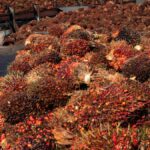Volatility in coffee prices is expected to persist due to uncertainties surrounding U.S. tariffs and climate conditions affecting crops in major producing countries such as Brazil and Vietnam. Coffee has notably outperformed the broader agricultural market, reflecting ongoing supply concerns.
According to BMI, a division of Fitch Solutions, coffee prices increased by 29.7% year-to-date as of September 15, highlighting a significant upward trend compared to both the agricultural complex and the softs category. “Two main factors have been placing upward pressure on prices: U.S. tariffs on Brazilian exports and concerns about supply availability in Brazil,” BMI reported. They also noted potential downside risks, particularly that coffee plants in Brazil typically flower from September to November, requiring rainfall at the close of the dry season.
Praveen Kumar Kolimarla from Agrani Coffee and Commodities remarked on the erratic market fluctuations driven by speculation and various economic variables, especially the uncertainty surrounding tariffs. He noted that the initial fears of a coffee shortage due to the tariffs recently sparked a price rise. Additionally, concerns about adequate rainfall for Brazil’s next crop contributed to increasing prices. However, a rumor regarding potential tariff exemptions led to a wave of technical selling. Fundamental concerns about Brazilian rainfall are currently minimal, with forecasts indicating some expected showers. Kolimarla warned, however, that declining certified stocks—which have dropped from nearly one million bags to around 650,000 bags—could create market pressure if they continue to decrease.
Regarding rainfall, Kolimarla stated, “By November, if it’s still dry, it is a concern. But then typically it happens every year; we often see the market react to dry weather or lack of rainfall once the frost season ends.”
Pramod Somiah, a coffee roaster in Kodagu, emphasized that price volatility will persist and will be influenced by weather conditions in key coffee-producing nations like Brazil and Vietnam. He highlighted that the U.S. government’s response to requests from roasters seeking tariff exemptions may also impact prices. Additionally, the effects of super typhoon Ragaasa on Vietnam’s upcoming coffee harvest, set to begin next month, are a source of concern.
In India, the Coffee Board has forecasted a crop of 403,000 tonnes for the 2025-26 season, an 11% increase from the final estimate of 363,000 tonnes for the previous year. This forecast includes Arabica production estimated at 118,000 tonnes, reflecting a 12% rise from last year’s 105,000 tonnes, while Robusta output is projected to exceed 284,000 tonnes—up 9.5% from the previous estimate of 257,000 tonnes for 2024-25.
Published on September 25, 2025.










